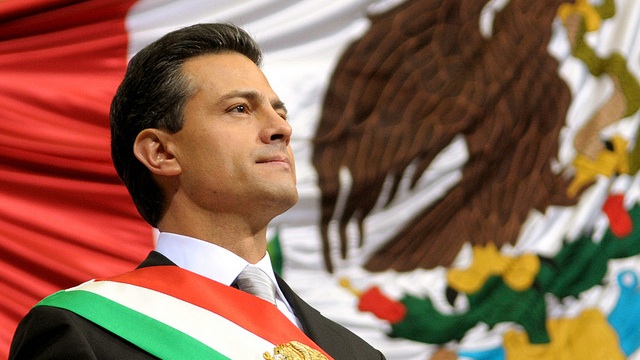SUMMARY
This is AI generated summarization, which may have errors. For context, always refer to the full article.

MEXICO CITY, Mexico – Mexican President Enrique Pena Nieto said Wednesday, September 4, he would try to talk this week with US counterpart Barack Obama about reported spying on his emails, warning it would be illegal.
The two leaders will come face to face at the Group of 20 meeting in Russia on Thursday, four days after it was reported that the National Security Agency snooped on the online activities of Brazilian and Mexican leaders.
The new claims of spying in Latin America came two months after allegations of widespread US electronic espionage in the region that infuriated allies and rivals alike.
“If it is proven that an action took place, with the use of espionage means, this is clearly not permitted and it is outside the law,” Pena Nieto told reporters during a layover in Canada before arriving in Saint Petersburg.
“There will surely be space at the G20 for some sort of meeting, either casual or informal, with the US president to make our position very clear,” he said, recalling that his government has asked the United States to investigate the matter.
Brazilian President Dilma Rousseff is already in Russia for the G20 talks and she is scheduled to visit Obama in Washington next month, though Foreign Minister Luiz Alberto Figueiredo refused to say this week whether the trip would be affected.
The Mexican and Brazilian governments summoned the US ambassador to their respective countries this week to seek explanations about the latest espionage claims.
In Brasilia, Communications Minister Paulo Bernardo said the answers given by the United States since the first allegations emerged in July have been “false.”
US journalist Glenn Greenwald, who has access to secret documents leaked by fugitive former NSA contractor Edward Snowden, told Brazil’s Globo television this week that the agency spied on Rousseff’s Internet searches and Pena Nieto’s emails before his election last year.
In July, Greenwald co-wrote articles in Brazil’s O Globo newspaper saying the NSA spied on Latin American allies and rivals, using electronic espionage to monitor military purchases in Venezuela, energy and drug issues in Mexico and rebel movements in Colombia.
He also revealed that the US government had a joint NSA-CIA base in Brazil to gather data on emails and calls flowing through the country.
In his latest report, Greenwald said the NSA was trying to better understand Rousseff’s methods of communication and interlocutors using a program to access all Internet content she visited online.
Before Pena Nieto was elected in July 2012, the NSA intercepted some of his phone calls, text messages and emails, including communications in which he discussed potential cabinet members, it is alleged.
“These revelations are more damaging than the earlier ones because there’s not even any anti-terrorism pretext,” Adam Isacson, a security policy expert at the Washington Office on Latin America policy group, told Agence France-Presse.
“Spying directly on the leaders of friendly countries is different than a broad anti-terror dragnet. It will be up to US leaders at the highest levels, including President Obama, to communicate personally to Mexico’s and Brazil’s presidents about what happened,” he said.
The row was at the center of a visit by US Secretary of State John Kerry in Brazil in August and Justice Minister Jose Eduardo Cardozo discussed the issue in Washington with US Vice President Joe Biden last week.
The Brazilian government now wants Internet governance and US espionage accusations to be discussed in international forums.
“It’s more serious that what appeared at first sight,” Bernardo said.
But, he added, “we are friends, we have 200-year-old diplomatic relations and diplomacy is the way to resolve this.” – Rappler.com
Add a comment
How does this make you feel?





There are no comments yet. Add your comment to start the conversation.